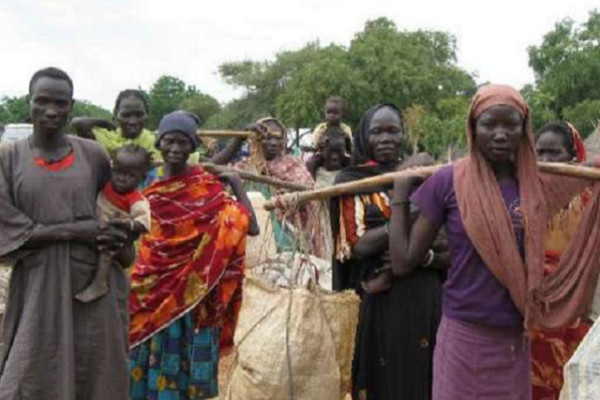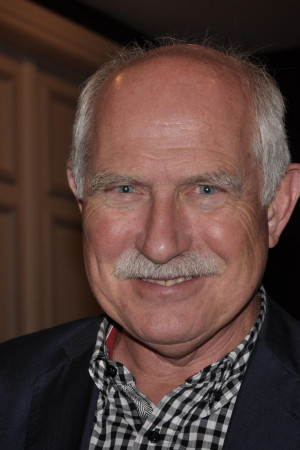Our speaker, Cees Wittebrood retired from ECHO (European Civil Protection and Humanitarian Aid Operation) seven years ago. In his presentation he talked about the challenges of providing humanitarian aid to the many needy populations worldwide.
Humanitarian aid is defined as the provision of material, logistical, and moral assistance to individuals and communities in distress due to natural disasters, armed conflicts, or other emergencies. Its primary objectives are to save lives and livelihoods, alleviate suffering, and protect human dignity, adhering strictly to the principles of humanity, neutrality, impartiality, and independence. The Basic Principles of Humanitarian Aid are: 1. Humanity 2. Impartiality 3. Neutrality 4. Independence 5. Voluntary 6. Unity 7. Universality Cees emphasised that humanitarian aid is NOT charity. The difference is that charity is “doing good”: it is donor-focused, voluntary, and without obligation, while Humanitarian aid is “doing well”: it is beneficiary-focused, professional, an internationally recognised fundamental right.
This right to humanitarian aid is encompassed in:
1. International Humanitarian Law: Geneva Conventions
2. “Ius in bello”
3. Human Rights Law
4. Refugee Convention
5. UN General Assembly Resolutions
6. Ethical and Moral Principles:
Humanitarian Charter. Humanitarian Space refers to the physical and political environment in which humanitarian organisations can operate independently, neutrally, and safely to deliver aid to people, especially in conflict zones or during crises.
Key Principles of Humanitarian Space:
1. Access: Humanitarian actors must be able to reach affected populations
2. Safety: Workers and aid recipients must be protected from violence and interference
3. Neutrality and Impartiality: Aid must be given solely based on need, without taking sides
4. Respect for International Law: Parties in a conflict must allow humanitarian action.
Article 214 of the Treaty on the Functioning of the European Union (TFEU) outlines the EU’s legal basis for humanitarian aid. It authorises the EU to provide assistance, relief, and protection to victims of natural or man-made disasters in non-EU countries. Specifically, Article 214 enables the EU to conduct activities and a common policy in the area of development cooperation and humanitarian aid, while also respecting the competence of Member States.
Humanitarian aid is carried out based on need, regardless of nationality, race, gender, religion, class, or political opinions. EU aid is carefully tailored to each crisis, taking into account, gender, age, and specific needs. Image from the EU
ECHO funds humanitarian operations of: Food and Nutrition
• Healthcare
• Shelter
• Clean Water and Sanitation
• Resilience and Prevention
• Cash and Vouchers.
These operations are possible through the cooperation with a global network of over 200 humanitarian partners from large UN agencies to small NGOs.
Regions in most need of humanitarian aid are in:
• Africa: Sudan, South Sudan, Ethiopia, Congo, Burkina Faso, Central African Republic, Chad, Nigeria, Niger, Zimbabwe, Zambia, Mali, Mozambique, Somalia, Eritrea, Malawi.
• The Middle East: Syria, Gaza, Yemen, Lebanon.
• Asia : Afghanistan, Bangladesh, Myanmar, Philippines. • South America: Venezuela, Haïti, Colombia, El Salvador, Guatemala, Honduras.
• Europe: Ukraine.
An estimated 323 million people are in need, which is almost the size of the US population. ECHO aims to provide humanitarian aid to just 198 million, for which a funding of $50 billion is needed, and only $21 billion is secured.
Mr. Wittebrood contrasted the funding needed for humanitarian aid with military expenditure. The global military spending in 2024 was $2,718 billion (10% increase), while the US military spending in the same year was $1,000 billion, which exceeded the combined defence budgets of China, Russia, India, Saudi Arabia, U.K., Germany, France, South Korea, and Japan combined.
To offer some perspective: the cost of just one Stealth Bomber is $2 billion, while EU Humanitarian funding is €1,9 billion.
The recent closure of USAID will have dire consequences for many humanitarian projects that have lost funding. These range from the treatment of HIV/AIDS, TB, and malaria, as well as support for refugees in war-torn countries and/or following natural disasters. Furthermore, the closure of USAID immediately weakened efforts to combat corruption, strengthen judicial systems, and support free media in developing countries.
Cees talked about the current challenges of providing humanitarian aid to the Palestinian population as Israel is defying calls to provide safe access to Gaza.
However humanitarian aid has been impactful. Since 2007, ECHO has adopted the Sahel Plan to actively support that region, including the Sahel famine. Later, as part of the Sahel Alliance (since 2017), it has improved access to drinking water for over eight million people, provided food assistance to 7.8 million, and offered some form of education to two million children.
To conclude, Cees proudly showed as a slide with the front page from 2014, when Time’s Magazine named the Ebola fighters as Person of the Year, recognising the efforts of organisations like (Doctors Without Borders/Médecins Sans Frontières (MSF), the Christian medical-relief workers of Samaritan’s Purse and many others from all over the world who fought the virus side by side with local doctors and nurses, ambulance drivers and burial teams.



